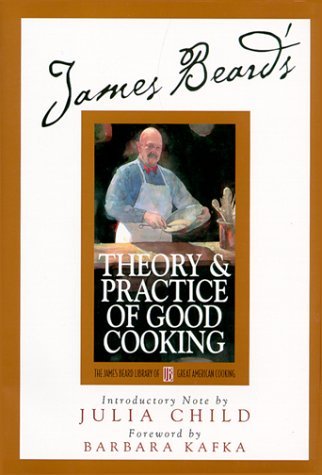From the James Beard Foundation:
As its name suggests, James Beard’s Theory & Practice of Good Cooking explained “the hows, the whys, the techniques, the basics as well as the subtle nuances of good cooking”. Each chapter tackled a basic cooking technique—boiling, roasting, sautéing, and so forth—and gave a set of recipes that put the theory into practice. The book was based on Beard’s cooking classes, and from the very first sentence, readers could rest assured they were in the hands of a master: “Cooking starts with your hands, the most important and basic of all implements. They were the earliest tools for the preparation of food, and they have remained one of the most efficient, sensitive, and versatile. Hands can beat, cream, fold, knead, pat, press, form, toss, tear, and pound.” Prose like this makes us want to get into the kitchen.
note about the author:
Books would be released not only as "James Beard", but also "Jim Beard" and "James A. Beard". "Jim Beard" is what his books were first published under.

